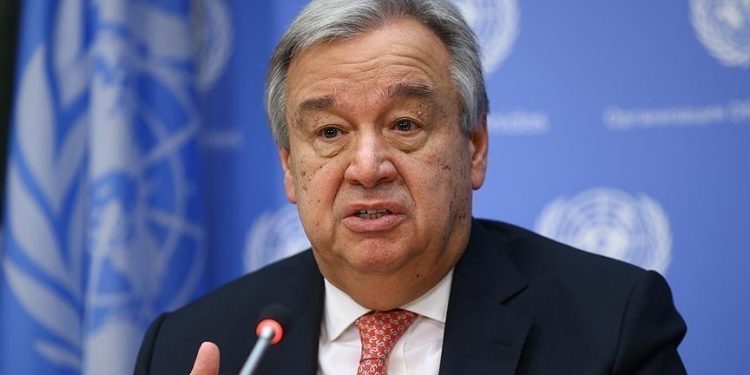United Nations, New York
The U.N. Secretary-General has warned that the Earth is becoming hotter and more dangerous for everyone, killing nearly a half-million people annually, and he blamed fossil fuels for driving global warming.
“Billions of people are facing an extreme heat epidemic – wilting under increasingly deadly heat waves, with temperatures topping 50 degrees Celsius around the world. That’s 122 degrees Fahrenheit. And halfway to boiling,” Antonio Guterres told reporters.
Sunday was the Earth’s hottest day on record, only to have the record broken the following day. Temperatures have been rising steadily, with scientists declaring the last 13 consecutive months all heat record-breakers. Urban areas are heating up at twice the global average.
Heat waves have killed scores of people this year in India and in Africa’s Sahel region. Last month, extreme heat killed 1,300 Muslim pilgrims in Saudi Arabia. This month, Europe, the United States and Asia have also seen exceptional heat.
He said that the World Health Organization and World Meteorological Organization estimate that improvements to heat health warning systems in 57 countries could save nearly 100,000 lives a year.
Fossil fuels
Guterres has repeatedly called on greenhouse gas emitters to meet the 2015 Paris Climate Accord’s target of limiting global temperature rise to 1.5 degrees Celsius – a goal that many worry is slipping away. He said that fossil fuel expansion and new coal plants are obstacles to meeting that target.
“I must call out the flood of fossil fuel expansion we are seeing in some of the world’s wealthiest countries,” he said. “In signing such a surge of new oil and gas licenses, they are signing away our future.”
He urged leaders to quickly and fairly phase out fossil fuels and end new coal projects.
“The G20 must shift fossil fuel subsidies to renewables and support vulnerable countries and communities,” he said of the world’s largest economies.
And he urged more climate adaptation and mitigation financing from the richest countries – which are the biggest emitters – to help the poorest, most vulnerable nations that have contributed the least to global warming.
Guterres said he is launching a global call to action focused on caring for the most vulnerable, including protecting workers who are exposed to extreme heat.
“A new report from the International Labor Organization – being released today – warns that over 70% of the global workforce – 2.4 billion people – are now at high risk of extreme heat,” he said.
In addition to the rights and health of individual workers, there are economic impacts of extreme heat too.
“Heat stress at work is projected to cost the global economy $2.4 trillion by 2030. Up from $280 billion in the mid-1990s,” Guterres said, adding measures need to be taken to “heat proof” critical sectors of the global economy, like farming and construction work.
The U.N. chief warned that extreme heat widens social inequality, undermines development, furthers food insecurity, and pushes people deeper into poverty.
“Leaders across the board must wake up and step up,” he said.






